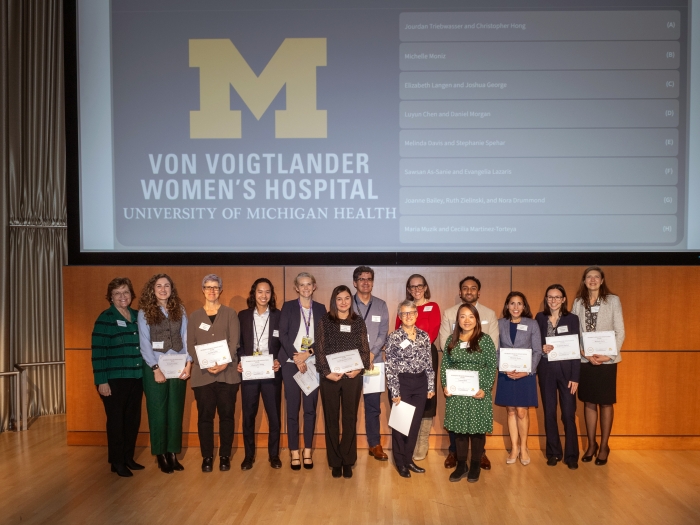Training at the Top
Join the best obstetrics and gynecology program in Michigan where, every day, we improve the lives of real individuals, in our clinics and around the world.
The U-M Medical School Department of Obstetrics and Gynecology is committed to academic excellence.
That means our world-class faculty are dedicated to our students, residents, and fellows — from the classroom to their transition into practitioners or academics of the highest quality. We prepare students with a breadth of knowledge that spans all aspects of the OBGYN specialty and the scientific basis of our subspecialties.
Become your best, in a department where unprecedented research leads to groundbreaking translational medicine. Where, every day, we improve the lives of real women, in our clinics and around the world.
"We train and educate future physicians and leaders to improve women’s health care here and across the world."

See why our trainees think Ann Arbor is the perfect place to explore your interests and find balance while you study and work at Michigan Medicine.
From housing and health to getting around the city, learn everything you need to know about living and learning in Ann Arbor, Michigan.
We coordinate and facilitate the educational efforts within the Department of Obstetrics and Gynecology by cultivating an environment of shared expertise and faculty development.
Learn more about our upcoming educational events.






